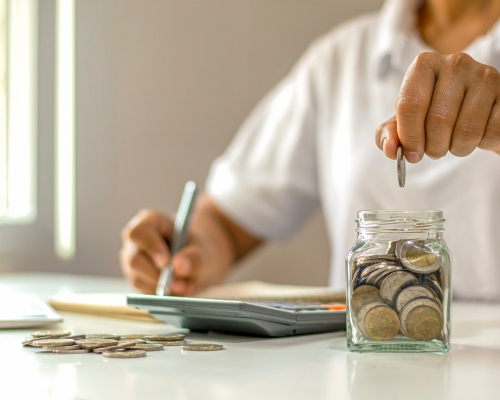In the realm of personal finance, the terms ‘frugal’ and ‘cheap’ often get tossed around interchangeably. But are they really the same? The answer is a resounding ‘no’. Being frugal is all about channeling your expenses towards what genuinely holds value for you.
On the other hand, being cheap is about cutting corners at every opportunity, often at the expense of quality and long-term benefits. Striking this balance can be a tricky endeavor that many find challenging.
As we venture further into this subject, we’ll uncover the subtle distinctions that set frugality apart from mere cheapness, assisting you in pinpointing your position on this scale.
Are you prepared to set sail on this illuminating voyage?
Differences between being frugal and being cheap
1. Value vs. Cost
Frugality: Prioritizing Value
Frugality revolves around comprehending the true worth of a product or service. Frugal individuals are willing to spend more if they believe the item has a high value, such as durability, functionality, or long-term benefits. Those who practice frugality understand that a steeper initial cost can frequently result in long-term savings.
Cheapness: Focusing on Cost
On the other hand, cheap individuals primarily focus on the cost of an item. They aim to spend the least amount of money possible, often disregarding the quality or long-term durability of the product. This can lead to repeated purchases and potentially higher costs over time.
2. Long-term vs. Short-term
Frugality: Long-term Perspective
Frugal people tend to think in the long term. They are open to investing in high-grade products that promise durability and offer more value over time. They also contemplate the future consequences of their spending patterns, such as setting aside funds for retirement or unforeseen circumstances.
Cheapness: Short-term Focus
Cheap individuals, however, are more focused on the short term. They prioritize immediate savings over enduring value, which can eventually lead to escalated costs due to the necessity for replacements or repairs.
3. Quality vs. Quantity
Frugality: Quality Matters
Frugal individuals prioritize quality over quantity. They lean towards purchasing fewer high-grade goods that promise longevity and superior performance. They understand that “less is more” when the items are of high quality.
Cheapness: Quantity Over Quality
In contrast, cheap individuals often prioritize quantity over quality. They may buy more merchandise of lower quality because they are less expensive upfront. However, these items may not last as long, leading to the need for frequent replacements.
4. Investment vs. Saving

Frugality: Investment Mindset
Frugal people understand the importance of investing. They are open to allocating funds to things that promise future returns, such as education, high-quality appliances, or a dependable vehicle. Those who embody frugality view such acquisitions as strategic moves toward their future comfort and financial steadiness.
Cheapness: Saving at All Costs
Cheap individuals, however, are primarily focused on saving money. They are less likely to spend money on investments and more likely to hoard their money. While saving is important, this approach can limit their financial growth and future security.
5. Impact on Others
Frugality: Respectful of Others
Frugal individuals are not only conscious of their spending habits, but they also consider the repercussions of their actions on others. They are willing to spend more in situations where it benefits others, such as tipping service workers fairly or contributing their share in group expenses.
Cheapness: Neglecting Others
In contrast, cheap individuals may prioritize their savings over the well-being of others. They might under-tip service workers, avoid paying their share in group situations, or burden others with their cost-saving measures. This can strain relationships and lead to negative social consequences.
6. Ethical Considerations
Frugality: Ethical Spending
Frugal people often consider the ethical implications of their purchases. These folks might be inclined to spend more on products that are eco-friendly, ethically procured, or support local enterprises. Their focus extends beyond saving money to making responsible and ethical decisions.
Cheapness: Ignoring Ethics
Cheap individuals, however, may overlook ethical considerations in favor of saving money. They might opt for the cheapest option without considering factors like environmental impact, labor practices, or the effect on local businesses.
7. Time Value
Frugality: Valuing Time
Frugal people understand that time is a valuable resource. They balance the time spent on finding deals or cost-saving measures with potential savings. If the time investment doesn’t justify the savings, a frugal person would rather pay a bit more to save time.
Cheapness: Overlooking Time
On the other hand, cheap individuals might spend excessive amounts of time to save a small amount of money. They may fail to consider the value of their time and how it could be better spent.
8. Health Prioritization

Frugality: Prioritizing Health
Frugal individuals understand the importance of investing in their health. Frugal people are ready to invest more in nutritious food, regular health check-ups, and quality healthcare. They regard these as precious investments, integral to their enduring health and overall well-being.
Cheapness: Neglecting Health
Cheap individuals, however, might skimp on health-related expenses. They may opt for cheaper, less nutritious food or avoid medical check-ups to save money. Overlooking these aspects can lead to health complications in the future, which could turn out to be more expensive.
9. Social Considerations
Frugality: Considerate in Social Situations
Frugal people are considerate when it comes to social situations. They understand the importance of fairness when splitting bills and are willing to pay their share. When giving gifts, they focus on the thoughtfulness and appropriateness of the gift, rather than just the cost.
Cheapness: Skimping in Social Situations
Cheap individuals, however, may try to pay less than their fair share when splitting bills or give less valuable gifts to save money. This can come off as inconsiderate and may negatively impact their relationships.
Wrap Up!
Fundamentally, the difference between frugality and cheapness lies in the mindset and the wider implications of one’s actions.
While both involve careful spending, frugality is a holistic approach that balances cost, value, time, ethics, health, and social considerations. On the other hand, cheapness is a narrow focus on minimizing cost, often at the expense of quality, relationships, and long-term benefits.
I’m Grayson Watson, your frugal companion and the brain behind this money-saving extravaganza. Strap yourself in, because we’re about to embark on a wallet-friendly adventure like no other. Learn More!

